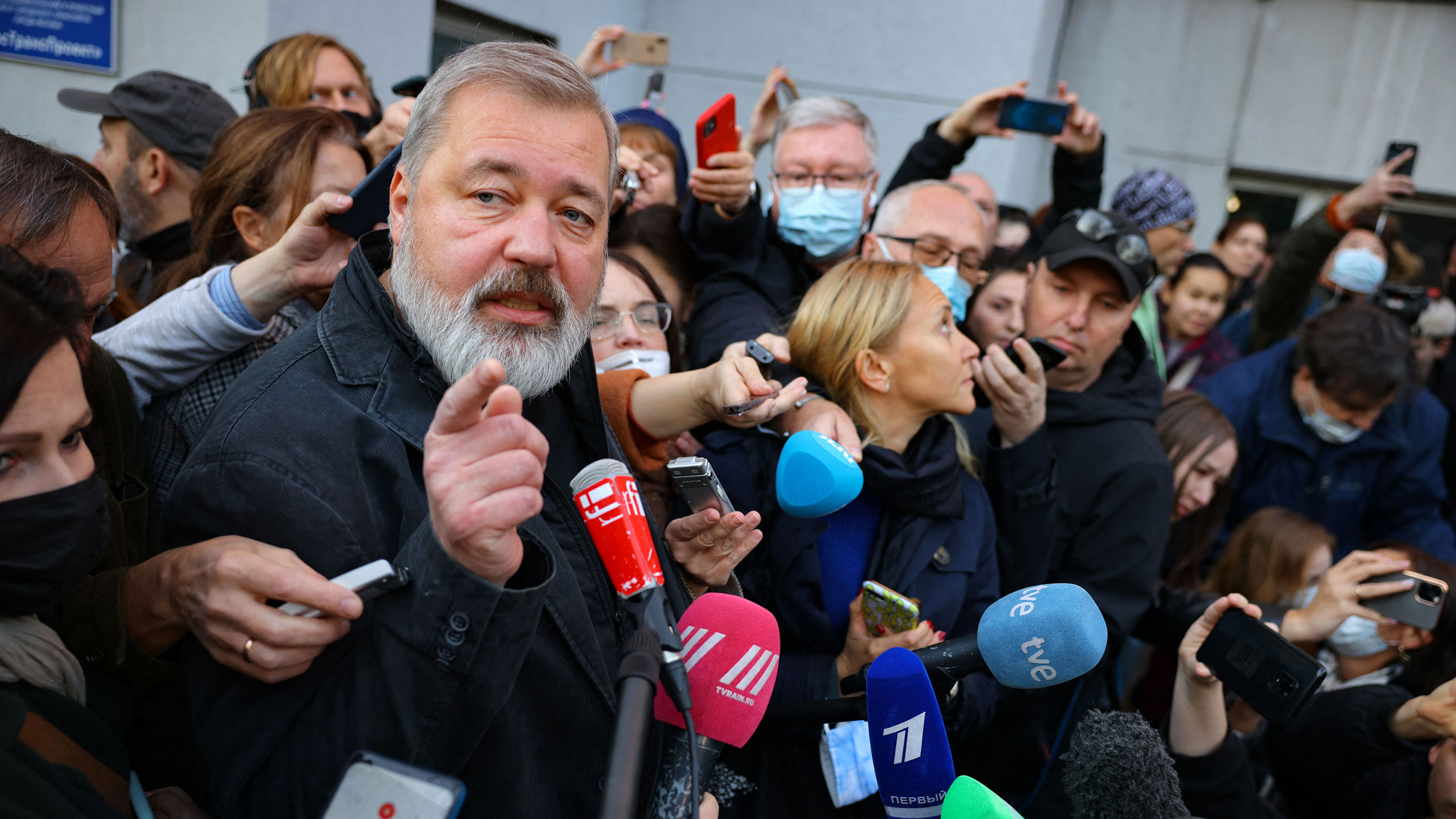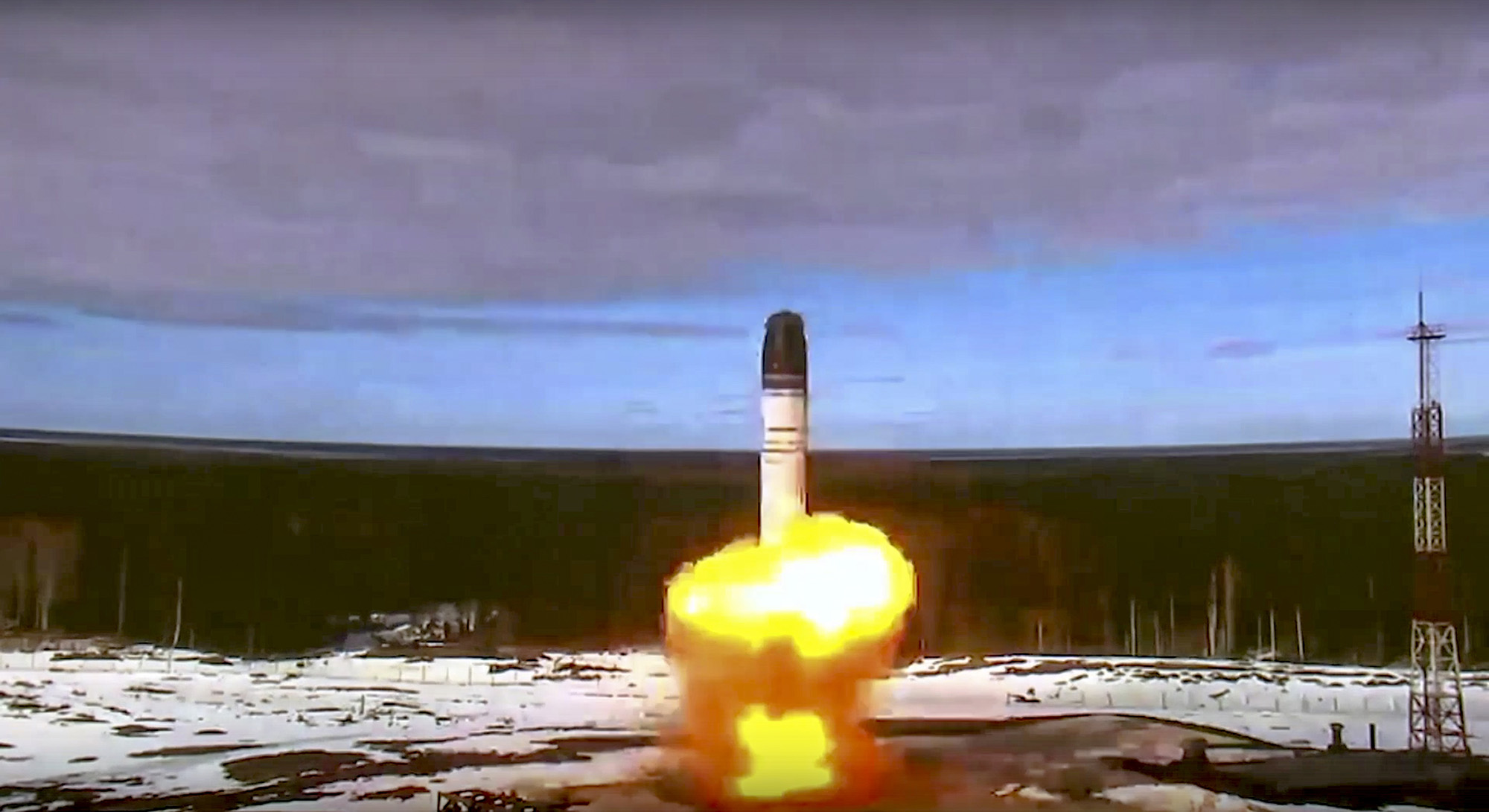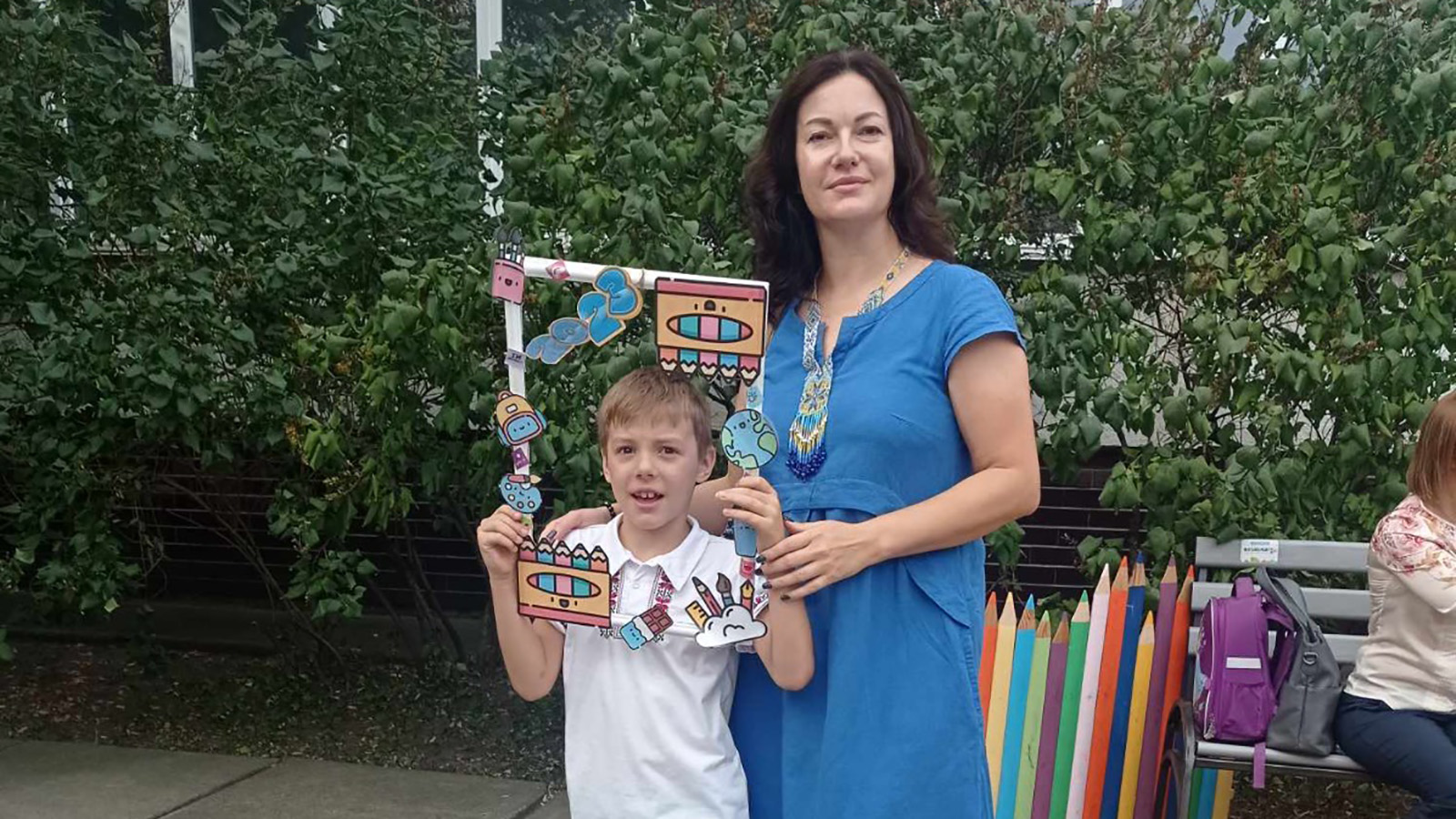Our live coverage for the day has ended. Follow the latest Ukraine news or read through the updates below.
September 1, 2023 - Russia-Ukraine news
By Chris Lau, Rob Picheta, Adrienne Vogt, Hannah Strange, Aditi Sangal, Matt Meyer, Elise Hammond and Tori B. Powell, CNN
Russia claims it stopped an attack on the Crimean bridge from Ukrainian sea drones
From CNN’s Mariya Knight
Russia said it stopped an overnight Ukrainian attack on the Crimean Bridge, also known as the Kerch Bridge, that links the annexed Crimean peninsula to the Russian mainland.
The Russian Ministry of Defense said Ukrainian forces attempted to attack the bridge with two unmanned explosive-laden boats.
The first "sea drone was detected in a timely manner and destroyed in the Black Sea,” at 11.15 p.m. local time (4.15 p.m. ET), the ministry said.
A second boat attack was thwarted three hours later early on Saturday morning and Russia said later Saturday that it stopped a third sea drone attack on the vital bridge, according to the defense ministry.
The third “sea drone was destroyed in the Black Sea,” at 02:20 am local time (7:20 pm ET), the ministry said.
Russian State Media RIA Novosti reported Friday that “the movement of vehicles on the bridge is temporarily restricted,” citing Russia's operational headquarters.
Ukraine is yet to comment on the alleged attacks.
Some context: The latest attempt on the Kerch Bridge comes after a Ukrainian security official claimed Kyiv’s responsibility for a July 17 attack on the bridge that left two people dead and injured their daughter, according to Russian-appointed officials.
The nearly 12-mile crossing is the longest in Europe and holds huge strategic and symbolic importance for Moscow. July's attack on the bridge was the second since Russia launched its invasion of Ukraine, after a fuel tanker exploded while crossing it in October.
It’s after midnight in Kyiv. Here’s what you should know
From CNN staff
Ukraine is “not failing” but “moving forward” in its counteroffensive, the country’s foreign minister told CNN on Friday.
Those criticizing the speed of Ukraine’s counteroffensive should consider the soldiers fighting at the heart of it, Dmytro Kuleba said.
Most recently, Ukrainian forces said they had penetrated the “first line” of Russian strongholds in the Zaporizhzhia region, in a sign that Kyiv is edging closer to Moscow’s sprawling network of fortified trenches along the southern front.
If you’re just now reading in, here’s what else you should know:
- New Russian missile system: Russia said its newest nuclear weapons system, the Sarmat intercontinental ballistic missile, is now operational. The Sarmat will replace Soviet-era Voevoda missiles, known by the NATO designation SS-18 "Satan," in Russia's strategic arsenal. As the SS-18's successor, the Sarmat has been nicknamed "Satan II" in the West.
- Nobel Prize committee decision: Ambassadors from Russia and Belarus have been invited back to the Nobel Prize banquet after being excluded last year because of Moscow's full-scale invasion of Ukraine, the Nobel Foundation said. The foundation said it is "broadening our invitations" to involve even those who do not share the values of the Nobel Prize. On Friday, Moscow added Nobel Peace Prize-winning journalist Dmitry Muratov to its register of “foreign agents.”
- Back to school: The lives of Ukrainian children and teens have been upended by Russia’s invasion of their country. Almost 4 million children in Ukraine went back to primary and secondary schools on Friday, according to the country’s education ministry. CNN spoke with Ukrainian teenagers in Kyiv who claim that they had been forcibly deported to Russia before being found and brought home by family members. Some said they were fed propaganda from Moscow.
- Entertainment: This summer’s blockbuster “Barbie” has made it to Russia — despite not being officially released there due to the war in Ukraine — and it seems Barbiemania has infatuated many Russians even as the movie draws condemnation from officials. Despite the enthusiasm, a number of Russian officials and lawmakers have slammed the iconic doll, made by US toy manufacturer Mattel, and the movie for promoting what they consider to be morally degraded Western values.
Russia adds Nobel Peace Prize-winning journalist to its register of "foreign agents"
From CNN’s Anna Chernova, Niamh Kennedy and Darya Tarasova

Russia has added Nobel Peace Prize-winning journalist Dmitry Muratov to its register of “foreign agents.”
Muratov, who is the editor of the Russian newspaper Novaya Gazeta, made the headlines last year when he announced plans to auction the Nobel Peace Prize medal he was awarded in 2021 to raise money for Ukrainian refugees.
Under a law expanded in December 2022, Russia requires all individuals or organizations receiving either funding or support from abroad to be classified as “foreign agents.”
Critics say Russia has used this legislation to stifle free speech and freedom of expression in the country, pointing to the restrictions faced by “foreign agents” which include a ban from most teaching jobs and state funding for projects.
Muratov appeared on the Russian Ministry of Justice’s register of foreign agents on Friday.
New Russian missile system known as "Satan II" has been placed on combat duty, official says
From CNN's Tim Lister

Russia says its newest nuclear weapons system, the Sarmat intercontinental ballistic missile, is now operational.
"The Sarmat strategic complex has been put on combat duty," Yury Borisov, the director general of the state space corporation Roscosmos, said in a media appearance.
It had been due to go on combat duty at the end of 2022.
The Sarmat will replace Soviet-era Voevoda missiles, known by the NATO designation SS-18 "Satan," in Russia's strategic arsenal. As the SS-18's successor, the Sarmat has been nicknamed "Satan II" in the West.
Some background: Russian President Vladimir Putin said in April last year that the Sarmat would be capable of delivering multiple nuclear warheads as far as the continental United States – and would “give thought to those who are trying to threaten Russia.”
At the time, Western analysts told CNN the threat to the US and its allies from Satan II was “extremely low,” and that Putin's high-profile testing of the weapon may have been intended to hide Russian military failures in its war in Ukraine.
Like the SS-18, the Sarmat could carry 10 and possibly more independently targeted nuclear warheads with a range of up to 18,000 kilometers (or about 11,185 miles), according to the Missile Defense Project at the Center for Strategic and International Studies.
It is expected to serve as a one-for-one replacement for the Voevoda missiles. Hans Kristensen, director of the Nuclear Information Project at the Federation of American Scientists, likened Satan II to a "facelift" for the Soviet-era SS-18, though he said there were "probably some enhancements under the hood."
Russia and Belarus invited back to Nobel Prize banquet after being barred last year due to Ukraine invasion
From CNN's Amy Cassidy and Christian Edwards
Ambassadors from Russia and Belarus have been invited back to the Nobel Prize banquet after being excluded last year because of Moscow's full-scale invasion of Ukraine, the Nobel Foundation said.
The foundation said it is "broadening our invitations" to involve even those who do not share the values of the Nobel Prize.
“It is clear that the world is increasingly divided into spheres, where dialogue between those with differing views is being reduced,” Vidar Helgesen, executive director of the Nobel Foundation, said in a statement Thursday.
“To counter this tendency, we are now broadening our invitations to celebrate and understand the Nobel Prize and the importance of free science, free culture and free, peaceful societies,” Helgesen said.
Russians and Belarusians have been excluded from countless events since Moscow launched its full-scale invasion of Ukraine, which has been heavily assisted by Minsk, in February 2022.
The foundation said its decision was made to prevent further “polarisation.”
The Nobel Banquet takes place annually in Stockholm on December 10, where five out of six Nobel Prizes are awarded. The Nobel Peace Prize is awarded in Oslo, Norway.
Swift criticism: Ukraine has condemned the decision and urged the foundation to reverse course.
"Most likely, the day the Russian ambassador sits in a nice suit in the Stockholm Concert Hall, the Russian army will be committing yet another war crime in the occupied Ukrainian territories, and Russian missiles will be destroying yet another residential neighborhood in Ukrainian cities," foreign ministry spokesperson Oleg Nikolenko said Friday.
A Swedish member of the European Parliament also called the decision “extremely inappropriate.”
On Swedish national radio, Swedish Liberal MEP Karin Karlsbro questioned why the foundation invited “three rogue states … that suppress their citizens, wage war and terror both in their own and neighboring countries” and “in no way subscribe to democratic values.”
Swedish Prime Minister Ulf Kristersson has said he would not have made the decision to invite Russia back to the banquet held in his country.
“The Nobel Foundation naturally decides themselves who they want to invite. But I, like many others, reacted with great surprise that Russia was invited,” Kristersson said in a statement sent to CNN on Friday.
“I understand that it upsets many people in both Sweden and Ukraine,” he added.
Read the full story here.
CNN’s Niamh Kennedy and Henrik Pettersson contributed reporting to this post.
Ukrainian teenagers forcibly deported to Russian centers say they were fed propaganda from Moscow
From CNN's Christiane Amanpour, Madalena Araujo, Olha Konovalova and Christian Edwards
The lives of Ukrainian children and teens have been utterly upended by Russia’s invasion of their country. When the International Criminal Court issued an arrest warrant for Russian President Vladimir Putin in March, the foremost charge against him was over an alleged scheme to deport Ukrainian children to Russian detention centers.
CNN spoke with Ukrainian teenagers in Kyiv who claim that they had been forcibly deported to Russia before being found and brought home by family members. Their return was made possible by Save Ukraine, an organization working to return deported children to their families.
“I was there for four months. And throughout these four months, I had to sing the Russian national anthem. That was compulsory,” said Nastya Motychak, a 15-year-old girl who said she was taken from the southern Kherson region and sent to Russian-occupied Crimea.
“We asked: Why aren’t we being collected? When will the buses come? Why aren’t we allowed out?”
Motychak was told by Russian guards that “the buses were too expensive.” And so she remained in the center during Christmas 2022 and into the beginning of the year – and she said she was only granted access to basic necessities if she performed acts of Russian patriotism.
“There were some secondhand clothing and hygiene products delivered for us. So when we asked for these, they said, ‘Whoever doesn’t like Russia doesn’t like me and isn’t going to get these things.’”
'If you don’t sing the Russian anthem, you’re not going to get anything,'" Motychak said she was told by an officer.
Motychak said she was able to speak to her mother on the phone once a week. Her mother contacted a volunteer working to bring detained Ukrainian children home. Together, they were able to travel to Crimea in February and bring Motychak home, along with other teens she had been detained with.
This week, Kyiv opened more than 3,000 criminal cases over Russia’s alleged crimes against children in the country, including dozens of torture cases, Ukrainian prosecutors said Thursday. Russia has repeatedly denied these accusations of torture and human rights abuses.
In July, Moscow authorities claimed some 700,000 children had been brought into Russian custody since the war began. The Russian government has defended the practice, saying they are saving the children and denying that the deportations are forced. Ukraine however, claims the children were illegally deported and that a much smaller number of children have been taken – an estimated 19,500.
CNN also spoke with Ksenia Koldin, 19, who helped retrieve her 12-year-old brother from a Russian detention center. Having been separated for months, Koldin said the reunion was tough, since she could see that her brother had been “tormented.”
“Not only had there been almost a thousand kilometers between us and we didn’t see each other for nine months – we’d also grown apart because of the psychological pressure put on him,” she said.
During his detention, Koldin said her brother had been shown Russian propaganda, making him doubt his own country and reluctant to return home.
“I understood I was being faced with the fact that he didn’t want to come with me. He was comfortable there, he had friends there, there was a war on in Ukraine, it was bad. Everything he’d been told by those around him – that there was a war on, all these khokhols [a derogatory term for Ukrainians], Nazis. I was very scared," Koldin said.
Koldin said that, with the help of a volunteer, she had been able to convince her brother to leave the center and come back with her.
“I couldn’t believe I had managed to bring him close to me, and in a few hours we could be on our way,” she said.
Watch more here:
Students prepare for air raids and huddling in shelters as they return to school in Ukraine
From CNN's Olga Voitovych in Kyiv and Ivana Kottasová in London

Kateryna Pylypenko prepared two backpacks for her youngest son’s first day of school on Friday: one with school supplies, and one for the bomb shelter.
“The bag (for the shelter) will be kept in the classroom. We were told it should contain water, a toy … and something to eat while they wait in the shelter for the air raid alarm to end,” Pylypenko told CNN.
As Russia’s brutal and unprovoked assault on Ukraine enters its third academic year, almost 4 million children went back to primary and secondary schools on Friday, according to the country’s education ministry. According to UNICEF, only about a third of children enrolled in Ukraine will be attending in-person classes this year, with the rest studying at least partially online.
Pylypenko’s two sons, who are 6 and 14 years old, will be going back in person. Their school in Kyiv decided to bring pupils back in after surveying parents a few weeks ago.
In-person classes involve some risk – Ukraine’s capital has been struck by Russian missiles and drones a number of times in recent months. But Pylypenko said she was keen for her sons to have a school experience that is as close to “normal” as possible, even though their father, her husband, is currently away fighting in the war.
The first day of school is usually a special occasion in Ukraine. Crowds of parents gather outside the gates, as children dress up in their best clothes and present their teachers with flowers.
“We were told that we shouldn’t buy flowers this year, but instead donate to the Ukrainian army,” Pylypenko said. “But I bought a small bouquet for my first-grader anyway. It’s all about the mood.”
Hundreds of miles away in Zaporizhzhia, 9-year-old Dmytro Ukrainsky is one of the kids not allowed to return to class. Frequent attacks on the city, near the front lines in southern Ukraine, make in-person education far too dangerous.
“I used to love gym classes and computer science the most. But now they’re my two least favorite classes. Physical education is not the same now, because what kind of physical education is there in an apartment?” he told CNN.
Ukraine is "moving forward" in counteroffensive, foreign minister tells CNN
From CNN’s Catherine Nicholls and Zoe Cantley
Ukraine is “not failing” but “moving forward” in its counteroffensive, the country’s foreign minister told CNN on Friday.
“If Ukraine was failing, I would probably be the first one just to speak the truth. But we are not failing — we are moving forward,” Dmytro Kuleba said in an interview with CNN's Christiane Amanpour in Kyiv.
The foreign minister added that those criticizing the speed of Ukraine’s counteroffensive should consider the soldiers fighting at the heart of it.
“How does it feel when you come back from your mission and you take back your phone, you open it, and you start reading all the smart people saying how slow you are and that you're not doing well enough?” Kuleba said. “You just lost two of your buddies. You were almost killed. You crawled one kilometer on your belly demining the field. You sacrificed yourself - you took the damn Russian trench in a fierce fight. And then you read someone saying ‘Oh guys, you're too slow’?”
“Our partners who are helping us, including the United States, they understand that things are moving in the right direction. And they understand that there's no tragedy or no kind of slow down,” Kuleba continued. “It's just happening because it's tough. It's a tough fight.”
Most recently, Ukrainian forces said they had penetrated the “first line” of Russian strongholds in the Zaporizhzhia region, in a sign that Kyiv is edging closer to Moscow’s sprawling network of fortified trenches along the southern front.
Watch a clip of the interview here: